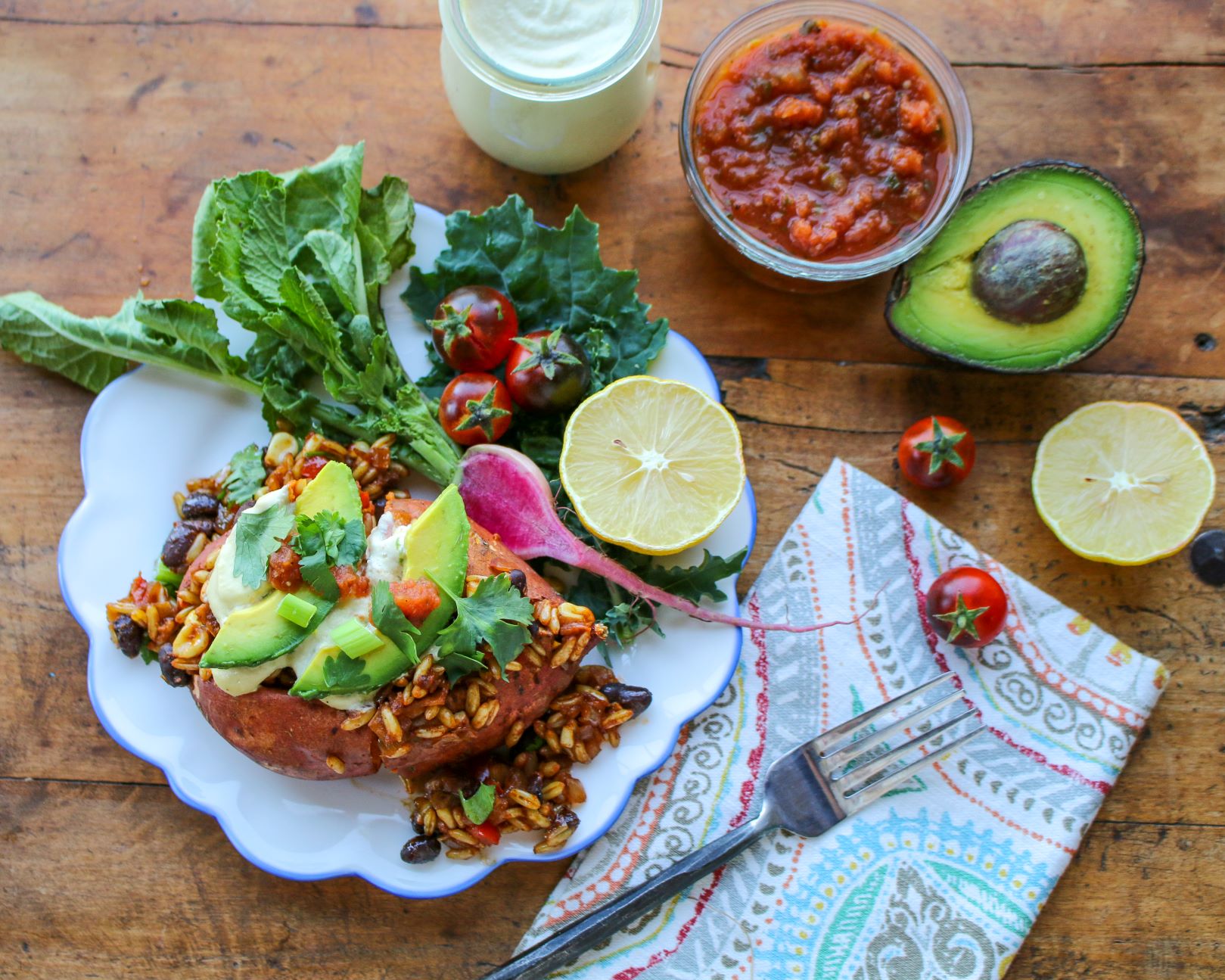Table of Contents
Have you heard that plant-based diets, including a vegan diet, are good for older adults, but wondering if it’s really true? Learn more about the benefits of plant-based diets for older adults, as well as how to meet nutritional needs on a vegan diet, from Registered Dietitian Sharon Palmer.
People from all walks of life and ages can experience health benefits on a plant-based diet, including a vegan diet. That’s the official position statement from the Academy of Nutrition and Dietetics. Older adults in particular may benefit from switching to a vegan diet, since eating a more plant-based lowers the risk of many diet-related chronic diseases associated with aging. In particular, a vegan diet is a heart healthy diet, as well as a diet associated with better gut health. As with all stages of life, the key to a healthy, plant-based diet for an older adult is good planning. There are certain nutrients that older adults need to pay special attention to, especially if they are interested in following a vegan diet. I’m answering your top questions on how vegan diets may benefit older adults, and how to plan them well. Learn more about plant-based diets for older women here, and get my free vegan toolkit to learn more about how to plan a healthy plant-based diet.
Why do plant-based diets help with heart and brain function?
Studies have consistently shown that plant-based diets are linked with lower risk of chronic diseases, such as heart disease, neurodegenerative diseases, hypertension, stroke, and cancer. It is likely due to the high value of antioxidant and anti-inflammatory compounds found in plant foods, as well as fiber, healthy fats, and nutrients.
In addition, diets high in red and processed meats have been linked with higher risks of chronic diseases, due to increased intakes of saturated fats, sodium, heme iron, and compounds in the processing of meat. Reducing these in the diet is also behind the beneficial effects of plant-based diets.

Can a vegan diet have a positive impact on the gut microbiome? If so, why can this be an important benefit?
Yes, plant-based diets are rich in fiber because fiber is only found in the plant world. When you eat a diet filled with whole grains, pulses, soy foods, fruits, vegetables, nuts and seeds, you increase the fiber intake of your diet significantly. The gut microbiota feed on fiber, thus plant-based diets promote greater diversity and numbers of healthful gut microbes.
There can be issues with bloating when switching to a plant-based diet. What tips do you have to avoid bloating and other uncomfortable GI symptoms?
Yes, many people complain of GI symptoms when they first make the shift to plant-based eating. Often because they are increasing the fiber dramatically, compared to the standard American diet which is quite low in fiber. However, research shows that gradual increases in fiber can be tolerated more easily—you can get used to higher fiber gradually over time. So, take your time increasing your fiber intake. Don’t include whole grains, pulses, cruciferous vegetables, nuts, and seeds all in one meal, for example. Start out more slowly with some unrefined grains and pulses a few times per week. Then build up over time as you get used to it. Include plenty of water in your diet. And you can try sprouting grains and pulses to increase digestibility; soak dried beans and discard soaking water—then cook thoroughly to make them more digestible.

What nutrients do older adults need to pay attention to when switching to a plant-based diet?
All older people should supplement B12, but it’s even more important on a vegan diet, so it is absolutely necessary to add that supplement to your diet. In addition, you need to ensure you are getting enough vitamin D, calcium, and iron on your plant-based diet. It’s possible with careful planning. It’s a good idea to meet with a Registered Dietitian that is knowledgeable about plant-based nutrition to plan out a healthful meal pattern.
How can you make sure you are meeting your nutritional needs when following a vegan diet?
If you include sources of plant proteins (soy foods, pulses, nuts, seeds, peanuts), whole grains, vegetables, fruit, nuts/seeds at each meal that can help you meet your nutritional needs. The exception is vitamin B12, which must be supplemented. Vitamin D and calcium can be obtained in fortified plant milk (vitamin D can come from sun exposure), and calcium can be obtained in grains, tofu, almonds, cruciferous vegetables. It’s important to have a diversity of foods in your diet to increase the nutritional content.

What advice do you have for an older adult that wants to start a vegan diet?
See a Registered Dietitian familiar with plant-based diets to help you map out a healthy eating plan that meets your nutritional needs. There are benefits for older people in eating a healthful, well-planned plant-based diet, so it’s not too early to get started! But it does take some planning, so be prepared.
Learn more about plant-based eating here:
5 Top Tips for Greening Your Plate
5 Tips for Plant-Powering Your Eating Style
7 Tips for Powering Up on Pulses
10 Tips for Making a Meal out of Canned Beans





More Stories
The One Thing You Should Never, Ever Do if You Have Insulin Resistance and Want to Lose Weight
Tuna Salad Lunch Box – JSHealth
Advanced Wellness Course – Heart Health